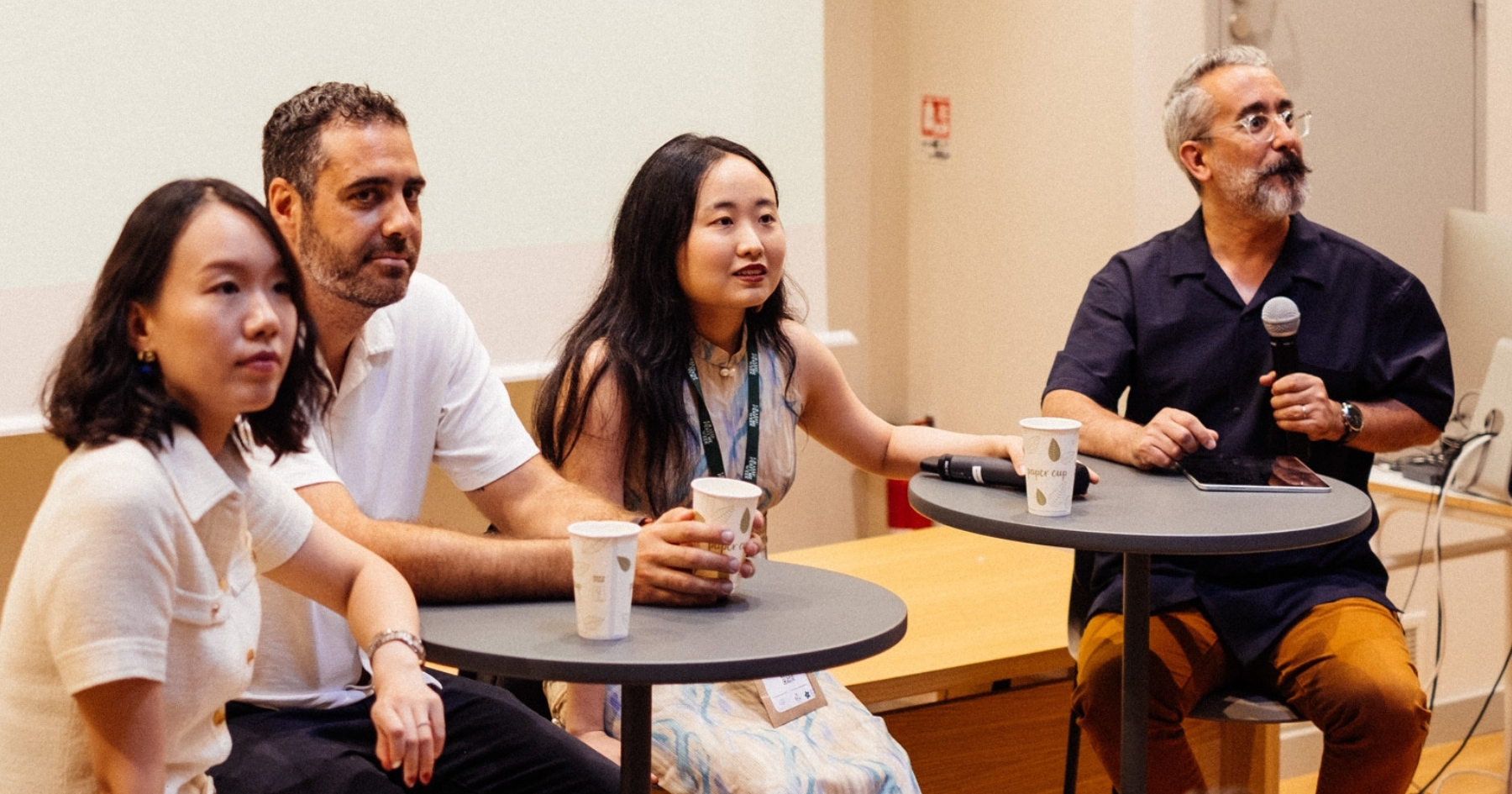Cette publication est également disponible en :
Français
This article was published in partnership with Firmenich.
The loss of smell and national lockdowns were a blow to the perfume industry, but they also managed to initiate necessary rethinking in the sector. In order to respond to emerging societal challenges, Firmenich is laying the foundations for a new paradigm in perfumery. Ilaria Resta, Global President for the Perfumery division at the Swiss company, discussed these questions on June 30th during a presentation at the World Perfumery Congress (WPC) held in Miami.
The shuttering of many businesses, the slowing down of trade and the lack of in-person social interaction had an immediate effect of diminishing the sector’s sales throughout the world. However, the pandemic brought to light the important role that our sense of smell plays in our well-being. During those complex periods where the world order was turned upside-down, such criteria became essential to selecting fragrances: “The fundamental reason why people use perfumes in their life is the desire to shift towards an act of self-care and comfort, as compared to in previous times, when ‘self-projection’, hedonic pleasure and sensuality were the driving forces,” explains Ilaria Resta, Global President for the Perfumery division at Firmenich. Having joined the fragrance house two weeks before countries started closing their borders, after 20 years of experience at Procter & Gamble, she impelled the sector to have a rapid evolution; she had to face that critical situation in order to rethink the model of creation. In a world where perfume consumers are more and more curious, searching for transparency, refusing gender stereotypes and developing a more global approach to their well-being, the old face of perfumery had lost its attractiveness. The multiplication of scientific studies on the sense of smell, following the discoveries of the impact of COVID-19 on it, along with the brands’ and composition houses’ initiative, has made it possible to strengthen knowledge of the neurological impact of odors: “Fragrance has the power to change our mood and evoke emotions due to its ability to influence our brain. As such, and since the brain controls the body, certain fragrances can enhance feelings of well-being by triggering the body to relax, to feel less stressed, to gain more focus and even to lift up spirits,” emphasizes Ilaria.
Thus, a new approach to creation was developed: The goal of perfume isn’t just to smell good anymore, but to feel good. It is the purpose of “functional fragrance,” a branch of perfumery where it isn’t only the aesthetic aspect of what we are wearing that is taken into account but the emotional impact it has. In a world where self-care became a major preoccupation and where spending is constantly increasing, Firmenich knew it had its cards to play: “Our studies have shown that two-thirds of consumers are seeking perfumes that make them feel clean and will de-stress them.” A way to renew the historical roots of perfumery: Let’s think back, especially to ancient Egypt, where perfumery was at the heart of religious rituals and medical care. The trend is growing, encompassing all perfumed products, from cosmetics to fabric softener, opening up new perspectives for creation: “Skincare products are becoming much more sensorial, not only as they shift from a clinical to a more holistic notion of skin well-being but also because the connections between olfactory receptors in the skin, our nervous system and skin health are better understood. We see preventive health care beginning to take an interest in perfumes or rehabilitation clinics adding them to their protocol,” continues Ilaria.
This attention focusing on olfaction and its importance in our daily lives influences another trend: the renewal of the digital experience, from which the sense of smell had long been excluded. With the rise in power of what we call the “phygital,” the screen needs to be the vector of a complete immersion in another form of reality that includes all of our senses. The development of the metaverse is projected to concern 30% of the world’s companies by 2026, according to the American company Gartner. Scent offers a powerful anchoring to the real world; it confers a decisive potential to the multimedia era as well as to exhibitions previously determined by the primacy of sight. In different museums, the nose is now mobilized. The Museum of Craft and Design in San Francisco hosted “Living with Scents,” an exhibition that closed in June, which centered on odors where the work of more than forty different artists and designers was featured. Firmenich collaborated with Refik Anadol, an artist and designer, who presented an immersive digital installation in May at the Casa Batlló in Barcelona, as a homage to Gaudí.
And if the virtual now offers a place for the olfactory, the profession of perfumer is in turn imbued with the digital, since artificial intelligence is now an integral part of developments: “Fragrances are complex chemical compositions. Each material, and there are hundreds in one perfume, has a different physical and chemical property. Artificial intelligence is used to emphasize specific performance attributes of a fragrance or to create fragrances that will deliver a certain emotional benefit. This is already a key component of our innovation,” synthesizes Ilaria. Artificial intelligence provides different tools, enabling more important parameters of creation to be taken into account. We think about the regulations – in perpetual evolution – revolving around raw materials and their dosage. However, Firmenich has managed to put in place their EcoScent Compass, which regroups complex criteria and allows for the measuring of products’ environmental impact.
This is the result of consumer demand for sourcing transparency and more environmentally friendly products, which is part of these new impulses that are reshaping the industry. Perfumery would produce 92 million of tons of waste per year, and the climate emergency imposes itself as a call to action. In order to answer to the ambitious program of environmental, social and governance (ESG) objectives to be reached by 2030, Firmenich decided to rethink the perfumer’s palette by targeting CO2 extractions, more respectful of the environment than other extraction techniques, but also upcycled ingredients and biotechnology: “We have a lot of work ahead of us to give perfumers more possibilities to create to the highest sustainability standards. The palette of materials is fundamental to this, and I believe science will be the driving force. We are on the verge of another big transformation, like when synthetic materials were introduced. Biotechnology is the next big frontier. It allows us to create ingredients from renewable sources and construct them not only for the right olfactive performance, but also to bring functional benefits.” By way of example, Dreamwood, a Firmenich innovation with sandalwood facets, is 100% renewable, with a minimal carbon impact; it is also antibacterial and shows interesting properties for the skin. A way to call into question overly simplistic assertions about the natural, according to Ilaria: “Consumers are starting to wake up to the sometimes-misleading claims of naturality, understanding that natural does not always equal more sustainable, and demand a true and objective view informed by science.”
A central challenge for the Swiss company’s Global President for the Perfumery division, who guides her vision with “positive perfumery,” which is simultaneously for creativity, the planet and the consumer. And that certainly explains the current 30% increase in fine fragrance sales, higher than before the pandemic. Reshuffling the deck for a new era in perfumery to emerge: This suggests a range of possibilities with promising potential for years to come.








Comments